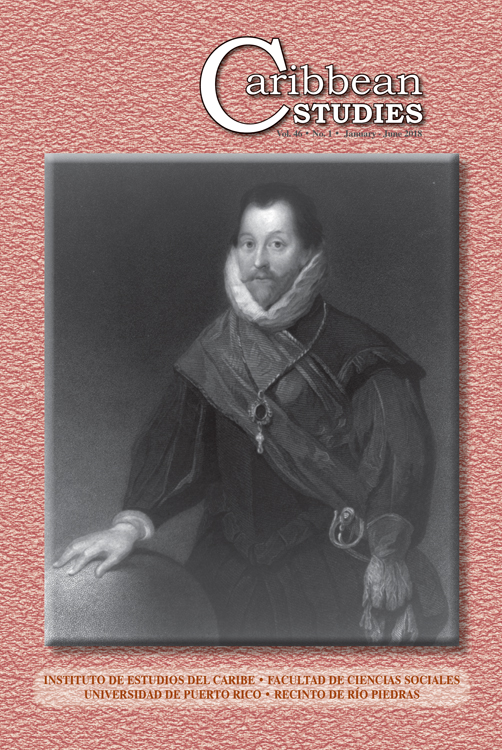Abstract
Based on the notion of Caribbean discourse as a permanent transaction between linguistic or aesthetic principles imposed by Western traditions and expressive models that naturally “arise” from the unstable subsoil of the popular tradition of the insular Caribbean, this essay examines the allegorical or symbolic emphasis of several meta-literary devices in two representative plays in the region. The strategic adaptation of a classic literary model in Une Tempête (1969), by Aimé Césaire, and the symbolic conceptual crisis in the intertextual game of Electra Garrigó (1941), by Virgilio Piñera, are interpreted as textually explicit strategies that, despite of the wide sociocultural distance between the two authors, contribute to think the Caribbean as a timeless continuity of models of
exchange, translation and redefinition of dissimilar cultural traditions.
References
Bhabha, Homi K. 1994. The Location of Culture. London: Routledge.
Césaire, Aimé y William Shakespeare. 1969. Une Tempête: D’après “la Tempête” De Shakespeare. Adaptation Pour Un Théâtre Nègre. Paris: Éditions du Seuil.
García, Chichester A. 2002. “Virgilio Pinera and the Formulation of a National Literature.” Cr: the New Centennial Review. 2(2):231-251.
Vásquez, Sam. 2012. Humor in the Caribbean Literary Canon. New York: Palgrave Macmillan.
Lobato, Morchón R. 2002. El teatro del absurdo en Cuba, 1948-1968. Madrid: Editorial Verbum.
Miranda, Cancela E. 2006. Calzar el coturno americano: mito, tragedia griega y teatro cubano. La Habana: Ediciones Alarcos.
Nixon, Rob. 1987. “Caribbean and African Appropriations of The Tempest.” Critical Inquiry 13(3).
Piñera, Virgilio. 1961. Teatro completo. La Habana: Ediciones R.
West, Russell. 2007. “Césaire’s Bard: Shakespeare and the Performance of Change in Césaire’s Une Tempête.” Journal of Caribbean Literatures| 4(3):1-16.
Zambrano, María, and Jorge L. Arcos. 2007. Islas. Madrid: Verbum.

